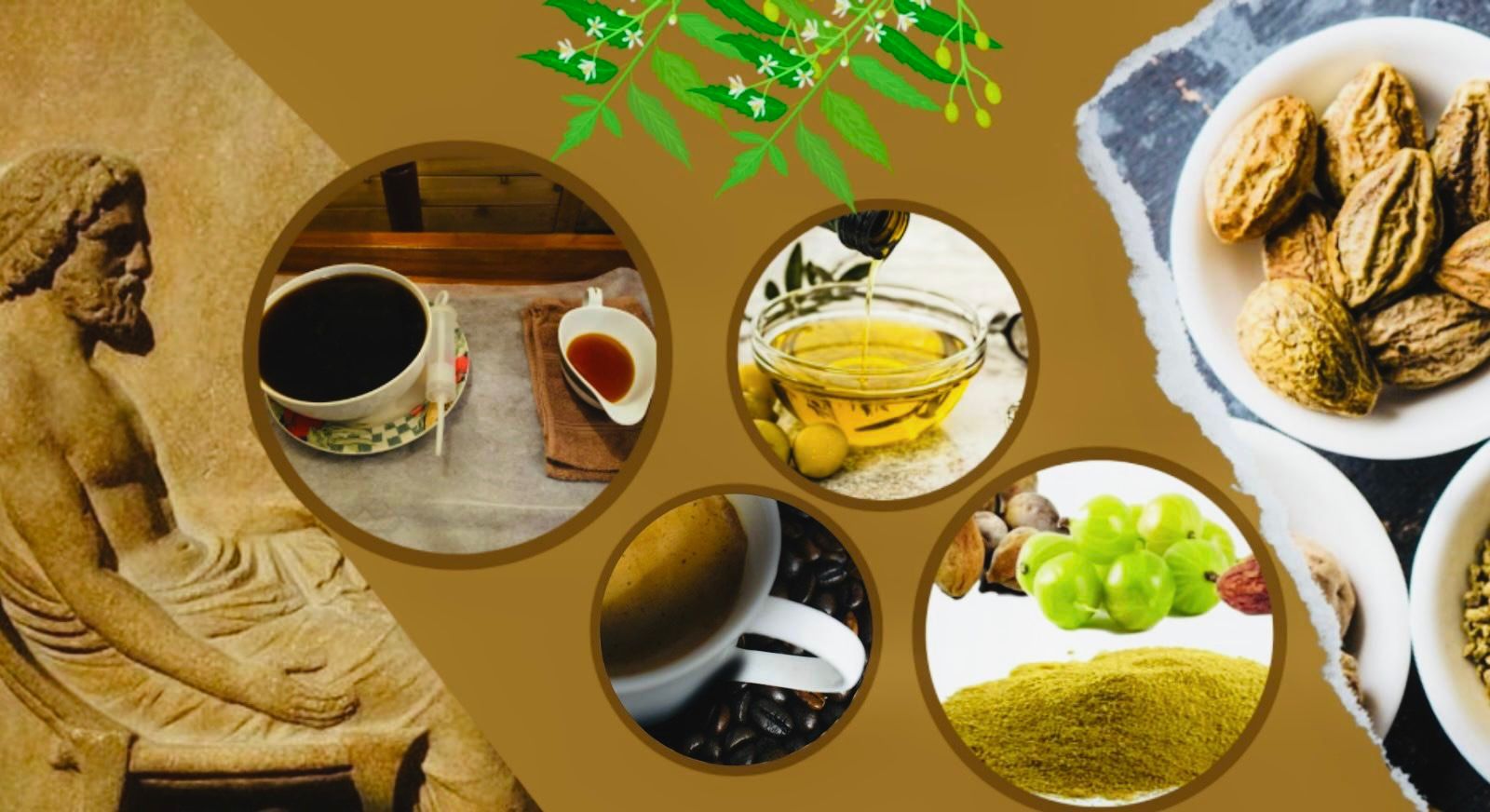The idea of liquid injection into the bowels may sound new and undignified, but it has a long history as a legitimate procedure practiced in Ayurveda and now in modern times: in hospitals, clinics, and at home.
Enemas are most commonly used for cleaning the lower bowel before an operation or medical examination, constipation, and flushing out toxins from the body.
It can also treat specific medical conditions such as Irritable Bowel Syndrome (IBS).
Enema
in Ayurveda and Enema histories.
First performed by Egyptian physicians in 1500 B.C.
Enemas have been a part of human history for at least 5,000 years, dating back to Egypt and ancient India.
They were first used to treat constipation and other digestive problems.
Hippocrates, the father of medicine
Hippocrates was a Greek physician in the 5th century B.C. who was known as the father of medicine.
Hippocrates was the first to describe the four humors in your body: blood, phlegm, yellow bile, and black bile. Hippocrates recommended enemas for constipation and other digestive problems.
The origins of the coffee bean enema
Dr. Gerson, a German physician who in the mid-19th century was helping to develop a cancer treatment that involved extracting feces from patients and reintroducing them into their colons via enema. This treatment worked (it was said to have been very effective in cancer cases) Coffee enemas are thought to stimulate bile flow and the production of glutathione, a detoxifying anti oxidant. Max Gerson was a German-American doctor who believed you could detox the body and give it the nutrients it needs to heal itself using an organic plant-based diet, raw juices, and coffee enemas.
According to an article by alternative medicine physician Linda L. Isaacs, M.D., people are continually exposed to toxic chemicals and pollutants in food, air, and water. As a result, she believes that anyone may benefit from coffee enemas as a way to “help stimulate the liver to rid the body of these waste materials and pollutants.”
The benefits of Enema of coffee beans biologic and Triphala
One of the most common uses for an enema is to relieve constipation. By flushing the large intestine with a liquid solution, you can help your body get rid of waste and eliminate toxins more quickly.
Another benefit of using an enema is that it helps cleanse the colon. The colon is filled with bacteria that can cause many problems, including cancer, so some people use enemas as part of their cancer treatment plan.
Some people also believe that regular coffee bean enemas can help relieve symptoms related to allergies and asthma.
Studies have shown that coffee beans contain compounds called antioxidants which may help prevent cell damage caused by free radicals (substances produced when cells break down).
Free radicals are believed to play a role in aging and disease processes such as cancer, heart disease, and Alzheimer’s disease; therefore, consuming antioxidant-rich foods such as green tea or coffee could reduce your risk over time. Are you looking for a way to cleanse your colon? Coffee enemas are a popular choice for many people.
While they can be beneficial, they are not recommended for pregnant women or anyone with certain conditions.
Benefits of Triphala in Ayurveda
Triphala is one of the most common Ayurvedic medicines that have multiple benefits. It has a unique formulation of three fruits: Amalaki, Bibhitaki, and Haritaki. The unique combination of these three herbs helps maintain the balance between our body doshas. It has a unique formulation of three fruits: Amalaki, Bibhitaki, and Haritaki.
The fruit is called ‘Triphala’, which means three fruits in Sanskrit. is a natural laxative that helps in digestion and weight loss.
It cleanses your body from toxins and improves your digestive system by stimulating bile secretion. With its purifying solid properties, Triphala can be used as a daily tonic for maintaining good health and longevity.
The unique combination of these three herbs helps maintain the balance between our body doshas.
Triphala is a natural combination of Amalaki, Bibhitaki, and Haritaki. These three herbs are known for their digestive, anti-inflammatory, and antioxidant properties, and they are also known to help in reducing cholesterol levels and blood pressure.
The unique combination of these three herbs helps maintain the balance between our body doshas. The amla (Indian gooseberry) has an astringent, cooling, and sour taste; bibhitaki has bitter and spicy flavors; haritaki has sweet, pungent, and astringent tastes, respectively.
Triphala is using it for Enema
One of the most common uses of Triphala is for enema. Medical science has found it an excellent laxative and digestive aid, especially for patients suffering from constipation or indigestion.
It helps relieve inflammatory conditions such as arthritis, gout, and rheumatism by removing toxins from the body through a gentle purgative action.
Triphala is an effective anti-bacterial, anti-fungal, anti-viral agent that helps prevent infections like Candida albicans or thrush (oral yeast infection) and genital herpes simplex virus (HSV).
It also reduces pain associated with cystitis (bladder inflammation), urethra stones, and kidney stones by increasing urine output which can help flush out the contaminants leading to their formation.
Cleanse your digestive tract with Triphala.
Triphala is a natural detoxifier and cleanser that promotes regular bowel movements. An average, healthy body requires a thorough cleansing of the digestive tract from time to time; Triphala can help you achieve that.
Triphala helps you combat constipation.
Triphala can be used as a laxative for mild constipation and to prevent chronic constipation.
It’s important to note that even though Triphala is a gentle, safe way to relieve constipation, it’s not recommended for long-term use or if you have severe digestive issues.
If your body has trouble digesting food and liquids properly, you may want to try adding more fiber into your diet before using Triphala as a laxative.
Triphala promotes weight loss.
Triphala is a great weight loss supplement that helps reduce fat, cholesterol, and blood sugar. It also helps to lower blood pressure by improving the functioning of both kidneys and the liver.
Relieve stress and anxiety with regular use of Triphala.
Triphala is a standard Ayurvedic medicine used for a variety of health benefits. It has been used since ancient times and is known to be one of the best natural remedies for various diseases and conditions.
What will be the best procedures?
An enema should be done in the morning and not later than two hours before lunch. The best way is doing after waking up and before breakfast.
The morning enema should be taken with a glass of water, while the evening enema should be accepted without a glass of water.
Conclusion
The idea of liquid injection into the bowels may sound new and undignified, but it has a long history as a legitimate procedure practiced in hospitals, clinics, and at home.
If the coffee enema is not your thing, then you can go for Triphala, a combination of three Ayurvedic herbs to cleanse the body.
As per the Ayurveda, Triphala has many benefits like it helps balance the three doshas (Vata, Pitta, Kapha) in our body and promotes healthy digestion. It has many health benefits.
It is easy to use and be used in Enema. It can be taken in many ways: in capsules, as a powder, or in granules.





